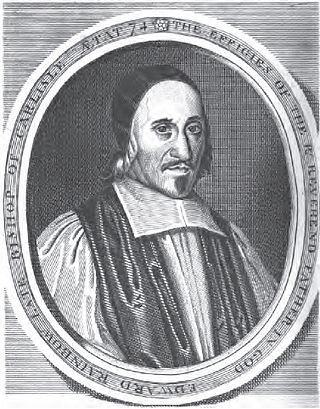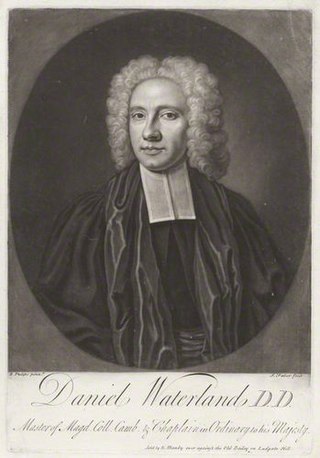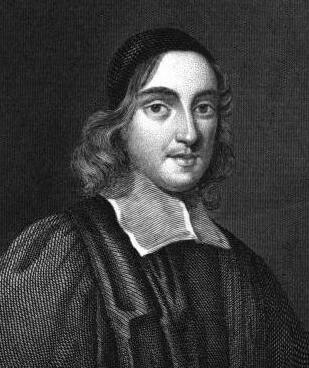Related Research Articles
The Regius Professorships of Divinity are amongst the oldest professorships at the University of Oxford and the University of Cambridge. A third chair existed for a period at Trinity College Dublin.

Edward Rainbowe or Rainbow (1608–1684) was an English academic, Church of England clergyman and a noted preacher. He was Master of Magdalene College, Cambridge, Vice-Chancellor of the University of Cambridge and Bishop of Carlisle.

Richard Farmer FRS FSA (1735–1797) was a Shakespearean scholar and Master of Emmanuel College, Cambridge. He is known for his Essay on the Learning of Shakespeare (1767), in which he maintained that Shakespeare's knowledge of the classics was through translations, the errors of which he reproduced.

Peter Heylyn or Heylin was an English ecclesiastic and author of many polemical, historical, political and theological tracts. He incorporated his political concepts into his geographical books Microcosmus in 1621 and Cosmographie (1657).
Richard Grey D.D. was an English churchman and author, archdeacon of Bedford from 1757. He is now remembered for his Memoria Technica, a work on a memory system.

Daniel Waterland was an English theologian. He became Master of Magdalene College, Cambridge in 1714, Chancellor of the Diocese of York in 1722, and Archdeacon of Middlesex in 1730.
Fitzherbert Adams D.D. was a man of learning, and benefactor of the University of Oxford.
James Hildyard was an English classical scholar.

William Owtram D.D. was a clergyman who published notable theological works. After leading the church of the House of Commons, St. Margaret's, Westminster, he gained preferment as the Archdeacon of Leicester.
George Waddington was an English priest, traveller and church historian.
Thomas Westfield was an English churchman, Bishop of Bristol and member of the Westminster Assembly.
Richard Clayton was an English churchman and academic, Master of Magdalene College, Cambridge and St John's College, Cambridge and Dean of Peterborough.
Peter Peckard was an English Whig, Vice-Chancellor of Cambridge University, Church of England minister and abolitionist. From 1781 he was Master of Magdalene College, Cambridge. He was incorporated at Cambridge in 1782, appointed vice-chancellor in 1784, and created Doctor of Divinity (DD) per literas regias in 1785. In April 1792 he became Dean of Peterborough.
Thomas Henry Stokoe DD, known as T. H. Stokoe, was an English clergyman, schoolmaster, author and headmaster.

John Edwards (1637–1716) was an English Calvinistic divine.
Edward Gee (1657–1730) was an English churchman, known as a controversialist, and later successively Dean of Peterborough and Dean of Lincoln.
John Barnard was a supporter of James II of England.

Andrew Snape (1675–1742) was an English cleric, academic and headmaster, provost of King's College, Cambridge, from 1719.
William George was an English churchman and academic, Provost of King's College, Cambridge from 1743 and Dean of Lincoln from 1748.
William Sanderson (c. 1586 – 15 July 1676) was an English historian.
References
- 1 2 "Barnard, John (BNRT644J)". A Cambridge Alumni Database. University of Cambridge.
- ↑ "PETER HEYLYN". Westminster Abbey. Retrieved 13 February 2014.
![]() This article incorporates text from a publication now in the public domain : "Barnard, John (d.1683)". Dictionary of National Biography . London: Smith, Elder & Co. 1885–1900.
This article incorporates text from a publication now in the public domain : "Barnard, John (d.1683)". Dictionary of National Biography . London: Smith, Elder & Co. 1885–1900.